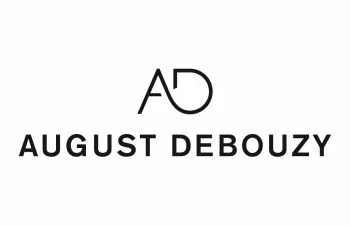The PACTE bill 1, adopted at first reading by the National Assembly on Tuesday, October 9, 2018, contains several patent provisions aimed at promoting innovation and facilitating the growth of SMEs.
From this point of view, the main contributions of the bill concern the promotion of French utility certificates (Article 40), the establishment of an opposition procedure before the "INPI" French PTO (Article 42) and the strengthening of the examination procedure before the INPI (Article 42 bis) (1.).
The Special Commission charged with examining this bill also considered various amendments to the bill, including the creation of a "provisional" patent application, which could soon be launched (2.).
These proposals, partly inspired by the German model, could make the French patent more attractive, particularly to SMEs. In order to reconcile this attractiveness with patents from other countries, it might be useful to add the possibility of requiring deferred examination of a French patent application and to designate France directly in "PCT" international applications (3.).
1. The main "innovations" of the PACTE bill in the field of industrial property
1.1 Promotion of utility certificates (Article 40)
In the current version of the French Intellectual Property Code ("IPC"), the certificate of utility is an industrial property title similar to a patent, but of more limited scope:
- its lifetime is six years (instead of twenty years for a patent);
- it does not result in a search report or substantive examination by the INPI; an
- a patent application can be transformed into an utility certificate application, but the reverse is not possible.
Thus, except a minimal cost difference (the patent requires the payment of a search fee of 520 euros, then costs to respond to the search report), the utility certificate has few advantages compared to the patent. In practice, the filing of an utility certificate application instead of a patent application is rare.
Article 40 of the PACTE bill proposes to amend article L.612-15 of the French IPC by two measures:
- on the one hand, extending the lifetime of the utility certificate to ten years (instead of the current six years);
- on the other hand, offering the possibility of transforming an utility certificate application into a patent application (the reverse transformation is already possible).
Thus, the utility certificate gains in lifetime (ten years instead of six) and flexibility (the patent can be transformed into a utility certificate, and conversely, the latter can be transformed into a patent).
This bill clearly aims to promote the utility certificate as a credible (and less expensive) alternative to the patent: a company could protect its invention by first filing a utility certificate application and then waiting several years before converting it into a patent application.
However, as it stands, the utility certificate will remain a less valuable industrial property title than the patent, in particular because it will not have given rise to any search report or substantive examination.
1.2 The establishment of an opposition procedure (Article 42)
The legal certainty (and therefore the value) of French patents is criticised for several reasons, including:
- the examination of a French patent application is limited – the INPI does not have the power to reject a patent application for lack of inventive step, only in case of "manifest" lack of novelty 2; and
- there is no administrative appeal against a decision to grant a French patent by the INPI, so that a third party hindered by a French patent has no choice but to bring a nullity action of the patent before the Paris First Instance Court (Tribunal de grande instance de Paris).
For comparison, the European Patent Office ("EPO") has set up an opposition procedure against the European patents it grants. Thus, when a European patent is granted by the EPO, third parties have the choice between (1) filing an opposition against the entire European patent within nine months of the grant decision and (2) seeking the nullification of a national part of the patent before the corresponding national court, without any time limit (excluding the status of limitation under national law).
The national patent offices of many countries (including Germany, Italy, Spain, Switzerland, Austria, Sweden, Norway, Finland, the United Kingdom, Denmark, Japan and the United States) already offer an administrative remedy against the national patents they grant.
In the field of trademarks, the INPI already set up an opposition procedure against trademark applications in 1991.
Article 42 of the PACTE bill proposes to introduce an opposition procedure against French patents before the INPI. The legal security of the French patent will be strengthened by simplifying for third parties the procedure that may lead to the nullification of invalid titles.
The terms (deadlines, costs, appeals, etc.) will be determined later by an order. The time frame for its effective implementation is at least 15 months.
In addition to the practical details, this proposal raises many questions:
- the scope of the grounds for opposition: in view of the explanatory memorandum attached to the bill, one may assume that the lack of inventive step will be a ground for opposition, but the question of insufficient description (which is not currently examined by the INPI at the examination stage either) has not been clarified;
- the interest in bringing an action: the nullity action against a French patent is open only to anyone who can prove a legitimate interest in bringing the action (Article 31 of the Civil Procedure Code), but the EPO does not require this and allows anyone to file an opposition against a European patent (including a "straw man");
- the authority of res judicata: the Paris Court of Appeal should have jurisdiction to examine appeals against the decisions of the INPI General Manager in opposition proceedings (as it already does for all decisions of the INPI General Manager, including trademark oppositions), the question then arises as to whether the decision of the Paris Court of Appeal will have the authority of res judicata and/or will impose an "estoppel" on the parties in a nullity action (as a main claim or as a counterclaim) brought between the same parties before the French courts on the basis of the patent which survived the opposition;
- the stay of proceedings: if an action has been brought on the basis of the French part of a European patent subject to an opposition pending before the EPO, the French courts may order a stay of proceedings if they consider the opposition to be serious ("de facto stay"); the American courts almost systematically order a stay if the American patent in question is subject to an opposition procedure known as the "Inter Partes Review"; one may therefore wonder whether or not the French courts will order a stay of proceedings if an opposition is pending against the French patent in question.
1.3 Strengthening the examination procedure (Article 42a)
As indicated above, at this point in time, the INPI does not have the power to reject a patent application for lack of inventive step, or for lack of patentable invention, but only for "manifest" lack of novelty 2. The current scope of the INPI's substantive examination is not in line with the standard of its international counterparts.
Article 42a of the PACTE bill proposes to amend Article L.612-12 of the French IPC to extend the scope of the examination by the INPI, by giving it the possibility to reject a patent application in particular:
- for lack of novelty (and no longer for "manifest" lack of novelty);
- for lack of inventive step; and
- on the ground that the claimed invention cannot be considered as an "invention" within the meaning of Article L.611-10, paragraph 2 of the French IPC 3.
In addition to the opposition procedure already proposed, this proposal aims to strengthen the substantive examination by the INPI and ultimately to improve confidence in the French patent system.
The Special Commission indicated that this new scope of the substantive examination would be made on a constant budget and would require a two-year period "in view of the changes in practice" that it will require.
2. In the short term: the likely creation of a "provisional" patent application
Before the EPO, during the EPC 2000 reform, Article 80 of the EPC was amended to allow applicants to obtain a filing date by filing a European patent application containing only a description, after which claims must be filed within two months. Article L.612-2 of the CPI was similarly amended by the order of 11 December 2008.
The United States propose the filing of a "provisional application", containing only a description of the invention (without claims). This application is only valid for a period of twelve months, within which time the applicant must file a patent application under the priority of the provisional application, containing claims.
Amendment No. 1990 to the PACTE bill 4 proposes to add a new type of patent application: a "provisional patent application".
According to the Special Commission, this new "provisional" application aims to facilitate access to intellectual property protection, particularly for SMEs, start-ups and French researchers. For this purpose, the filing of this application could be done online (on the INPI website), with a simple description (without claims). It would thus make it possible to "take a date" for one year, in line with the American provisional application, by going further than the possibility of filing a European or French patent application without filing claims for two months.
This amendment was withdrawn, but the government indicated that it wished to introduce a provisional application through the regulatory channel – the Council of State having considered in its opinion on the bill that it was not necessary to go through the law to introduce this provisional application, but that a simple decree (amending only the regulatory part of the CPI) could suffice.
However, the experience of US provisional applications shows that filing a patent application without claims could later raise priority right issues before the EPO or before the French courts, in a strict approach to the priority right. Given the likely low cost of a provisional application, the solution could then be to file a succession of provisional applications within the one-year period (one to take date, the next to add improvements and provide support for broad claims), and then file a patent application claiming the priority of all the previously filed provisional applications. The risk of losing priority (and therefore of being subject to the disclosures made within the one-year period) could thus be limited.
3. In the long term: how to make the French patent even more attractive?
3.1 First solution: the introduction of a deferred examination before the INPI
The current French system makes it possible to obtain a patent quickly and at a lower cost while benefiting from a search report and a written opinion drawn up by the EPO. In addition, to compensate for the shortcomings of the INPI's substantive examination, the patentee may always, after grant, limit the scope of his patent before the INPI (in particular in view of a legal action) 5.
The current French system therefore remains attractive for applicants who file a first French patent application and who then file a European or American patent application under priority of this first French application:
- they benefit for the French application from a search report at a lower cost than the one of the EPO;
- they then avoid an examination of the French application in parallel with the examination conducted at the EPO or in the United States; and
- the limitation procedure then makes it possible to limit the French patent, in view of the results of the examination conducted abroad.
The PACTE bill would, for its part, strengthen the legal security of French patents, but could appear less attractive for applicants who are also considering filing a European patent application, because of the concomitance between the examinations before the INPI and the EPO.
The question then arises as to how to improve the legal certainty of the current system for applicants who are satisfied with a French patent, while remaining attractive to applicants who also wish to obtain a European patent.
The solution could be to offer applicants the possibility of requesting a "deferred" examination of French patent applications before the INPI.
Germany already has a deferred examination system: an applicant may request the examination of his German patent application either on the filing date, or at any time during a period of seven years from the filing date.
If such a deferred examination were to be implemented:
- a company wishing only for a French patent could benefit from the new substantive examination before the INPI and thus strengthen the legal certainty (and value) of its title; and
- a company also wishing to obtain a European patent could postpone the examination of its parallel French patent application until it has obtained a European patent, and then request the examination before the INPI, taking advantage of the results of the examination before the EPO.
Incidentally, this would also allow the INPI to "smooth" the number of examination requests it will receive in the medium term, which would facilitate the implementation of the strengthened substantive examination and the opposition procedure, while maintaining sufficiently short deadlines (which is a decisive parameter for the attractiveness of the French system).
The possibility of a deferred examination could therefore further improve the attractiveness of the French patent.
3.2 Second solution: the direct designation of France in PCT international applications
The PACTE bill did not address the issue of the direct designation of France in so-called "PCT" (Patent Cooperation Treaty) applications.
At this point in time, Article L.614-24 of the French IPC 6 prevents France from being directly designated in PCT applications, so the only way to obtain a patent in France from a PCT application is through the examination of a European patent application by the EPO (so-called "Euro-PCT" applications).
For comparison, many European countries (notably Germany and the United Kingdom) already offer a direct designation, while others (notably Ireland, Italy and the Netherlands) are in the process of amending their legislation to provide for this possibility. This could lead many applicants (French or foreign) to prefer the direct designation of a few European countries rather than an examination before the EPO.
In France, to add this possibility of direct designation of France in international PCT applications, it would be sufficient to repeal Article L.614-24 of the French IPC. This repeal should be taken into account by the WIPO, in accordance with Article 45.2 of the PCT – France will however have to file the usual declarations in order to define the terms for entering into the French phase (deadline for opening the French phase, any translation required, fees, accepted attorneys, specific requirements, phase entry form, etc.).
This additional possibility would allow French SMEs to take advantage of the PCT channel (which allows them to provisionally cover the 152 Contracting States of the PCT for a period of 30 or 31 months) while retaining the possibility of choosing, if they wish, a substantive examination before the INPI or before the EPO.
This measure could therefore further enhance the value of the French patent system.
Footnotes
1 Text of the PACTE bill adopted on Tuesday, October 9 by the National Assembly:
http://www.assemblee-nationale.fr/15/ta/tap0179.pdf
2 Current version of Article L.612-12 of the French IPC:
3 Article L.611-10 of the French IPC:
4 Amendment No. 1990 (withdrawn):
http://www.assemblee-nationale.fr/15/amendements/1088/CSPACTE/1990.asp
5 Article L.613-24 of the French IPC:
6 Article L.614-24 of the French IPC:
The content of this article is intended to provide a general guide to the subject matter. Specialist advice should be sought about your specific circumstances.


